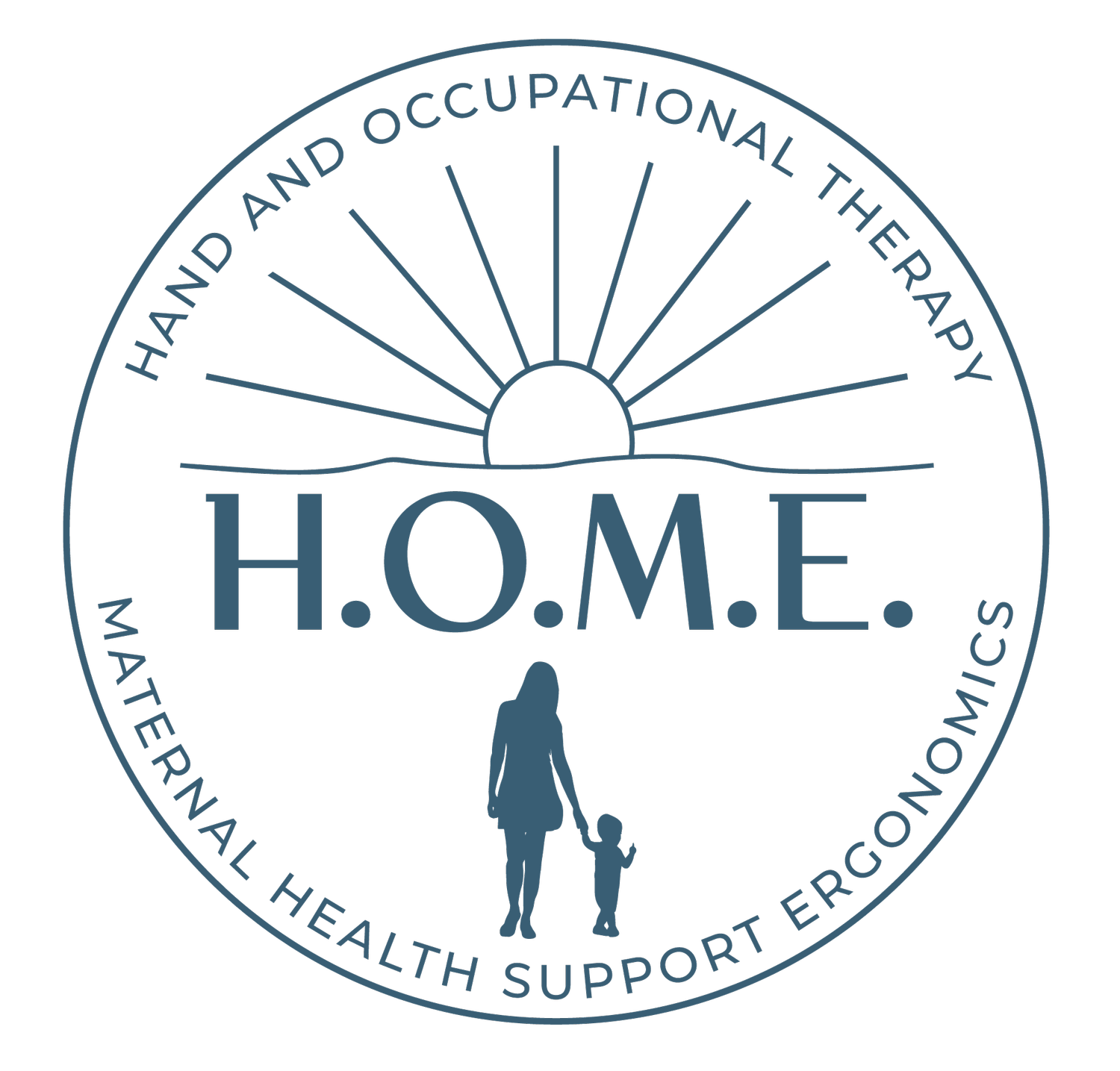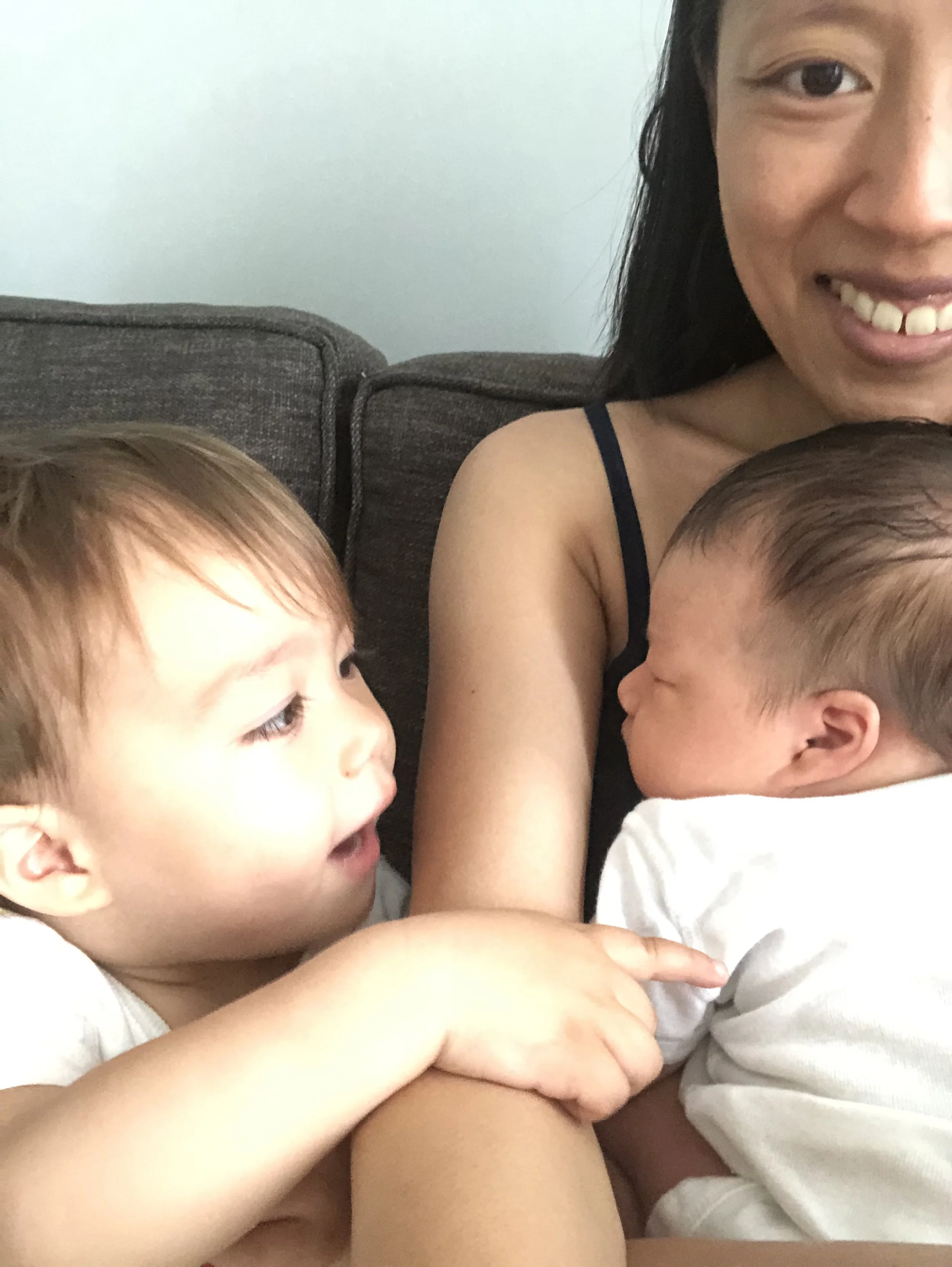How my journey began
Becoming a Mother
I became a mother early in the pandemic. My husband and I had no physical support the first few months while we isolated in our 1-bedroom apartment in Brooklyn. My parents met my son for the first time on a sidewalk from a distance wearing masks. Restaurants were shut down, postpartum physical gatherings like lactation support groups, Mommy and Me yoga, and local meetups did not exist. My in-laws, who live across the US, didn’t meet my son until he turned 1 year once most Americans had been vaccinated.
I exclusively breastfed my son for a year and during that time developed pain in both wrists and various aches and tightness in parts of my body from the physical demands of caring for my son. My posture visibly worsened, and I noticed overall muscular imbalances. Being sleep deprived, exhausted, and overwhelmed as a new mother, I didn’t prioritize my body. I was struck by how little attention I could pay to my health. I was just trying to survive as a new mother in the pandemic.
After ignoring my wrist pain for weeks, I started having difficulty with basic duties of motherhood like holding my baby and buttoning onesies. I finally treated myself as I would treat a client and my symptoms did resolve. If I hadn’t been able to figure it out on my own, coordinating care at an outside clinic would have felt overwhelming and logistically unmanageable.
During that first year of motherhood, I also struggled with my mental health and cried often. I assumed my emotions were just a “normal” part of becoming a mom and chalked it up to “mom burnout”. I figured all moms felt the way I did.
I gave birth to my second child in May 2022. In the early months, I experienced periodic insomnia and later developed multiple symptoms that led my psychologist to diagnose me with postpartum depression. I consulted with my OBGYN and a psychiatric nurse practitioner for medication management but after my case seemed to be treatment resistant (5 simultaneous medications with little symptom resolution), I enrolled in an intensive day program at The Motherhood Center of NY. The Motherhood Center changed my life. Through building relationships with other mothers diagnosed with perinatal mood and anxiety disorders, receiving daily care from clinical staff, and being surrounded by women who understood the struggle, I yearned to dedicate myself to supporting women in the perinatal period in some way. This urge inspired the start of my private practice.
You can learn more about my experience at The Motherhood Center’s Day Program alongside several other panel speakers on a webinar HERE.
Motherhood is a miraculous and transformative journey. It also takes a toll on our bodies and our overall health.
You aren’t in this alone. Mothers Stronger Together.
Clinical Background
Stephanie is a perinatal mental health certified (PMH-C) occupational therapist, Board Certified Hand Therapist, and Certified Ergonomic Assessment Specialist. Her clinical experience spans a decade working in private clinics and various hospitals across New York City including Mount Sinai, NY-Presbyterian, and Lenox Hill. She has worked primarily in outpatient OT/hand therapy specializing in post-surgical rehabilitation and conservative treatment across the spectrum of conditions affecting the shoulder, elbow, wrist, and hand.
Education/Credentials:
MS in Occupational Therapy (Columbia University Medical Center)
Certified Hand Therapist (CHT, Hand Therapy Certification Commission)
Perinatal Mental Health Certified Professional (PMH-C, Postpartum Support International)
Certified Ergonomic Assessment Specialist (CEAS II, The Back School)
BS in Mathematical & Statistical Sciences (Carnegie Mellon University)

Mothers Stronger Together
Chat with me
Contact me via email. You may also book a free intro chat with me.

